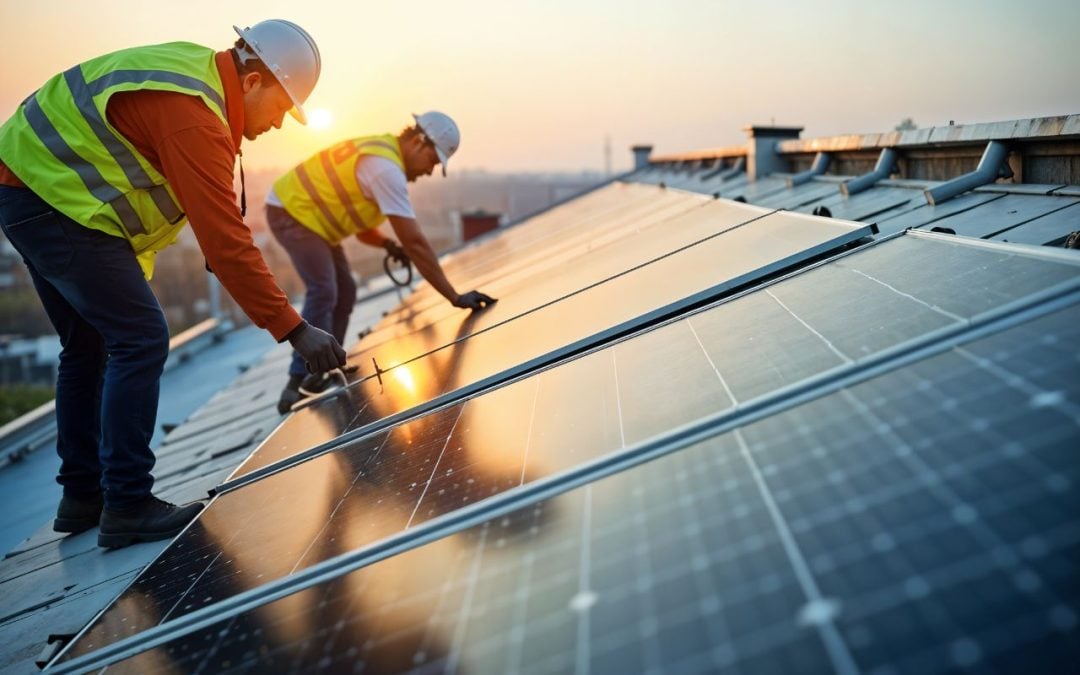The shares of India’s largest solar manufacturer, specializing in solar energy, particularly solar module manufacturing, jumped by up to 6 percent, even as other solar stocks declined. So in this article, let’s dig deep into the details and see what makes it different from others.
With a market capitalisation of Rs. 81,464.90 crores on Friday, the shares of Waaree Energies Limited jumped upto 6.2 percent, making a high of Rs. 2840.00 per share compared to its previous closing price of Rs. 2672.20 per share.
Waaree Energies Limited, which manufactures solar photovoltaic (PV) modules and undertakes Engineering, Procurement, and Construction (EPC) for solar power plants, is in focus after the company CEO’s clarification regarding US President Donald Trump’s “One Big Beautiful Bill.”
What is “One Big Beautiful Bill”?
“One Big Beautiful Bill” is a major law pushed by President Trump that aims to cut back government spending and change tax rules. One of the biggest changes in the bill is that it reduces or removes tax credits and incentives for renewable energy, especially for solar and wind power.
This means that solar companies and people who want to install solar panels would lose important financial help from the government. For example, the bill would phase out or end the federal tax credit that makes solar panels more affordable for homeowners and businesses. Without these credits, it will be more expensive to build new solar projects, and fewer people may choose solar energy.
As a result, solar companies could see less investment, fewer new projects, and possibly job losses. The solar industry and clean energy supporters are worried this bill will slow down the growth of solar power in the US and make it harder for the country to move towards cleaner energy.
Waaree Energies highlighted that it is not much affected by a new US bill from President Trump that reduces incentives for solar and wind energy, because the bill mainly targets retail and consumer segments, while Waaree focuses on large utility and industrial projects.
Furthermore, Amit Paithankar, CEO of Waaree Energies, stated that the proposed bill keeps important parts unchanged, including the manufacturing tax credit (Section 45X), which will continue to help the solar industry grow and innovate.
Future Plans of Waaree Energies
To keep up with this growing demand, Waaree plans to double the size of its manufacturing facility in Brookshire, Texas, increasing its capacity to 3.2 GW by the end of 2025. The company says it is committed to investing in US manufacturing and will follow all necessary rules, including the Foreign Entity of Concern (FEOC) regulations.
According to Waaree’s CEO, these FEOC rules help Indian companies like Waaree become more important in the US solar market. Waaree also shared that it has orders lined up for a total of 25 GW through 2027, showing strong business prospects for the years ahead.
Along with it, Waaree Solar Americas, the US branch of Waaree Energies, has recently won several big orders from major American power companies, including agreements to supply 586 MW and 599 MW of solar modules. These large deals show that there is strong demand for their solar panels made in the US, and that the company is doing well in the American market.
As of March 2025, Waaree Energies Limited collectively has an order book of Rs. 47,000 Crores, with a ~15GW and 5.4GW Solar Module and Cell manufacturing capacity, with backward integration in progress for Ingots, wafers, and more, along with diversification into other product segments like BESS, Green Hydrogen, and others.
Written by Sridhar J
Disclaimer

The views and investment tips expressed by investment experts/broking houses/rating agencies on tradebrains.in are their own, and not that of the website or its management. Investing in equities poses a risk of financial losses. Investors must therefore exercise due caution while investing or trading in stocks. Trade Brains Technologies Private Limited or the author are not liable for any losses caused as a result of the decision based on this article. Please consult your investment advisor before investing.


